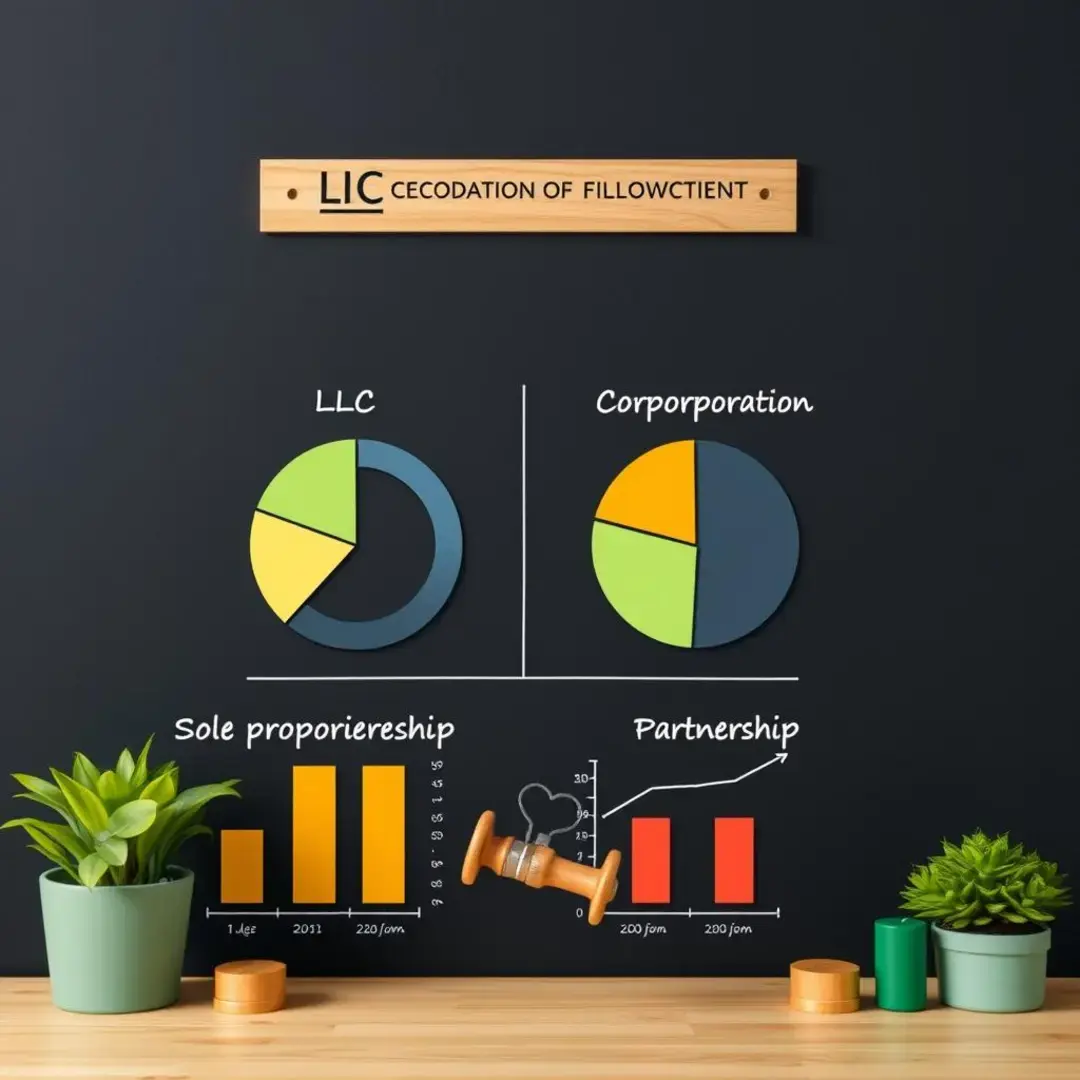Picking the appropriate Business Structure for Startups
Understanding the Implications of Business Structure

Legal Liability
Choosing the right business structure significantly impacts personal liability for entrepreneurs. In a sole proprietorship, personal assets are at risk to satisfy business debts. In contrast, limited liability companies (LLCs) and corporations generally safeguard personal assets, offering owners limited liability protection. This distinction is crucial as it influences not only risk exposure but also peace of mind for business owners.
In structures like LLCs and corporations, liability protection extends to shareholders and directors, which is vital during legal disputes. The corporate veil helps separate personal interests from business liabilities, making it challenging for creditors to pursue personal assets. This provides a framework where investors and stakeholders can engage without fear of personal loss, an essential factor in attracting capital.
Tax Implications
The tax obligations stemming from various business structures can greatly influence entrepreneurial decisions. Sole proprietorships are taxed at personal income tax rates, which can be higher than corporate tax rates faced by corporations. Understanding the tax landscape for options like S corporations or LLCs is essential as they may offer different benefits based on income levels and growth potential.
Tax deductions play a pivotal role in minimizing the tax burden of startups. Each structure allows for different types of deductions which can significantly affect cash flow and profitability. For instance, S corporations allow business losses to offset personal income, potentially lowering tax liabilities for shareholders in tough years.
The complexity of filing requirements varies significantly among business structures. Sole proprietorships often have simpler tax forms, while corporations are subject to more stringent filing requirements and deadlines, such as annual reports. These obligations must be considered in terms of both time and financial costs as businesses scale.
Administrative Burden
Each business structure comes with its own setup complexity, which can influence the speed at which a startup can commence operations. A sole proprietorship is generally simple to establish, requiring minimal paperwork, while LLCs and corporations involve more extensive legal documentation and compliance measures. Understanding these startup tasks early can help in organizing resources effectively.
Ongoing compliance is a critical consideration for startups. Corporations must hold regular board meetings and maintain corporate minutes, while LLCs have fewer requirements. The administrative tasks involved can divert time and focus from core business activities, an important factor to consider for efficiency.
Proper record-keeping is essential, especially for startups aiming for growth. Each business structure has its own requirements for reporting financial statements and maintaining records. Corporations often face stricter reporting requirements, necessitating a clear understanding of the implications for the overall management of the business.
Comparing Common Business Structures for Startups

Sole Proprietorship
Sole proprietorships provide a simple and cost-effective way to start a business. With complete control and minimal regulatory requirements, it’s an attractive choice for individual entrepreneurs. However, the primary disadvantage lies in personal liability, which exposes owners to significant risk, making it necessary to weigh these factors carefully.
This structure is often suitable for freelancers or small service-based ventures with low overheads and limited risk. It allows for quick decision-making and reduced operational costs, essential for those just testing their business ideas or entering the market with minimal investment.
Partnership
Partnerships can take the form of general or limited partnerships, each with distinct characteristics. In a general partnership, all partners share responsibilities and liabilities, while in a limited partnership, certain partners enjoy limited liability, reducing their risk exposure. This flexibility can be beneficial but requires clear agreements to delineate roles and responsibilities.
The advantage of partnerships lies in the combined expertise and resources of multiple individuals. However, disagreement among partners can lead to complications and conflicts, making it crucial to establish a solid partnership agreement upfront. The ability to pool resources can be invaluable, especially in the early stages of a startup.
A well-drafted partnership agreement is essential to outline profit-sharing, roles, and dispute resolution processes. It helps establish trust and clarity among partners, which is vital for long-term collaboration. Without a legal framework, partnerships risk misunderstandings that could jeopardize the business’s survival.
Limited Liability Company (LLC)
LLCs combine the benefits of both corporations and partnerships, offering flexibility in management while protecting personal assets. They allow for pass-through taxation, preventing double taxation of profits. However, the regulatory framework can be complex to navigate, making initial setup potentially daunting for entrepreneurs.
Creating an operating agreement is crucial for defining the roles and responsibilities of members in an LLC. This agreement acts as a foundational document, ensuring that members are aligned on key operational aspects. It can help mitigate potential conflicts and ensures smooth functioning as the business grows.
One of the significant perks of forming an LLC is its tax flexibility. An LLC can choose how it wishes to be taxed, either as a sole proprietorship, partnership, or corporation. This adaptability presents an opportunity to optimize tax liabilities based on specific business needs and circumstances.
S Corporation
S Corporations are unique in offering pass-through taxation like LLCs while maintaining a corporate structure. This feature can provide tax advantages, especially for business owners who wish to minimize self-employment taxes. However, ownership restrictions and more stringent compliance requirements can make S Corporations less attractive to some startups.
S Corporations have specific restrictions, such as a limit on the number of shareholders and only allowing U.S. citizens or residents as shareholders. This may limit capital-raising potential, making it essential for entrepreneurs to carefully consider their growth strategy when choosing this structure.
Tax benefits such as profit distribution to shareholders without self-employment tax enhance the appeal of S Corporations. However, maintaining S Corporation status requires adherence to ongoing compliance and reporting, necessitating more administrative effort from the owners.
C Corporation
C Corporations are often favored by startups seeking to raise substantial funding through investors and venture capital. They allow for unlimited growth potential and can issue multiple classes of stock. However, the downside includes double taxation, where earnings are taxed at the corporate level and again when dividends are distributed, which may deter some entrepreneurs.
C Corporations maintain strict governance structures, making them ideal for larger startups aiming for rapid growth. Shareholder rights must be upheld, and governing documents need to be meticulously maintained, which requires a greater commitment to governance compared to other structures.
C Corporations face unique tax implications, including corporate tax rates and potential double taxation on dividends. Understanding these tax responsibilities is essential for founders considering the long-term financial viability of their startup. Entrepreneurs must remain informed about tax reform and legislative changes that can impact their liabilities.
Factors Influencing the Choice of Business Structure

Startup’s Industry and Business Model
The industry in which a startup operates significantly influences the choice of business structure. Some industries, like healthcare, have strict regulations making certain structures more advantageous due to liability protection. Entrepreneurs must assess not only their business goals but also how their industry landscape can dictate structural viability.
Aligning the business model with the appropriate structure ensures optimized operations and legal protection. For example, e-commerce startups may benefit from LLCs due to their operational flexibility and tax advantages, while tech startups looking for rapid growth might prefer C Corporations for their fundraising capabilities. Understanding how different structures complement the business model is key for informed decision-making.
Funding and Investment Strategy
The chosen business structure can either facilitate or hinder investment appeal. Investors often favor C Corporations due to the potential for significant returns and established governance. Startups must opt for a structure that best aligns with their funding strategy and investor expectations to enhance their capital acquisition efforts.
The ability to raise funds and attract investors can heavily rely on business structure; for instance, partnerships may face challenges in bringing in outside capital. Founders should carefully evaluate how structural limitations can affect their ability to scale and meet funding goals within their industry.
Long-term Vision and Exit Strategy
Startups with a clear long-term vision must select a business structure that facilitates growth and scalability. Certain structures, like C Corporations, are designed to accommodate substantial growth, making them appealing for startups intending to expand significantly. The chosen structure should provide flexibility to adapt to market conditions and growth opportunities.
Finally, each business structure carries distinct implications for potential mergers and acquisitions. C Corporations are typically more favorable in M&A scenarios due to their established frameworks. Entrepreneurs should consider how their structure may influence future exit opportunities, ensuring alignment with their business goals.
Advanced Considerations for Choosing a Business Structure

Intellectual Property Protection
Startups often have valuable intellectual property (IP), and understanding how business structures can impact IP protection is essential. Different structures offer varying levels of IP security, which is crucial for startups in innovation-intensive industries. Entrepreneurs must consider how their business model aligns with robust IP protection strategies.
Establishing clear IP ownership and management strategies can safeguard innovations and enhance business value. Entrepreneurs should examine their structures to determine the best means of protecting trade secrets, patents, and trademarks, particularly in a competitive marketplace. Comprehensive IP planning helps mitigate risks and preserve value in the long run.
International Expansion Plans
Startups looking to expand internationally must consider how their organizational structure will support global operations. Certain structures facilitate ease of setup in foreign markets, while others may complicate international expansion. Understanding the legal requirements of each target region is vital for successful navigation of international expansion.
The tax and legal implications tied to international operations can be complex. Choosing a structure that simplifies compliance with foreign laws and taxes can save startups significant costs. Strategic planning and expert guidance are essential for effectively managing global operations and ensuring sustainability.
State-Specific Regulations and Incentives
Each state has unique laws governing business structures, and understanding these regulations is paramount for startups. Entrepreneurs must navigate state-specific requirements, filing fees, and compliance obligations as part of their structural decision-making process. This aspect can greatly influence operational success and sustainability.
Many states offer incentives to attract startups, including tax credits, grants, and favorable legislative frameworks. Identifying and leveraging these benefits can provide a competitive advantage, helping startups thrive in their respective markets. Entrepreneurs should thoroughly research potential state benefits while considering their chosen business structure.












